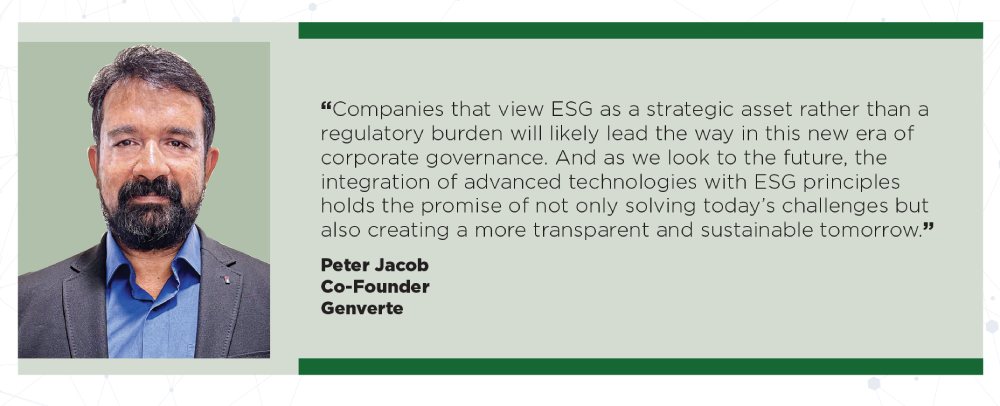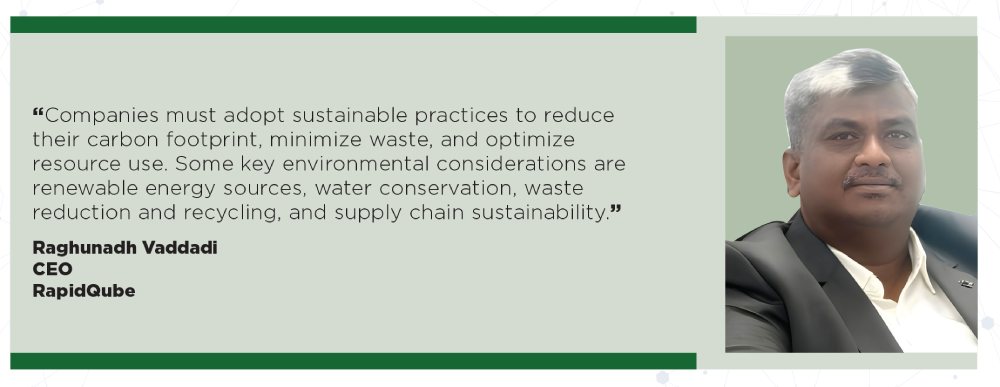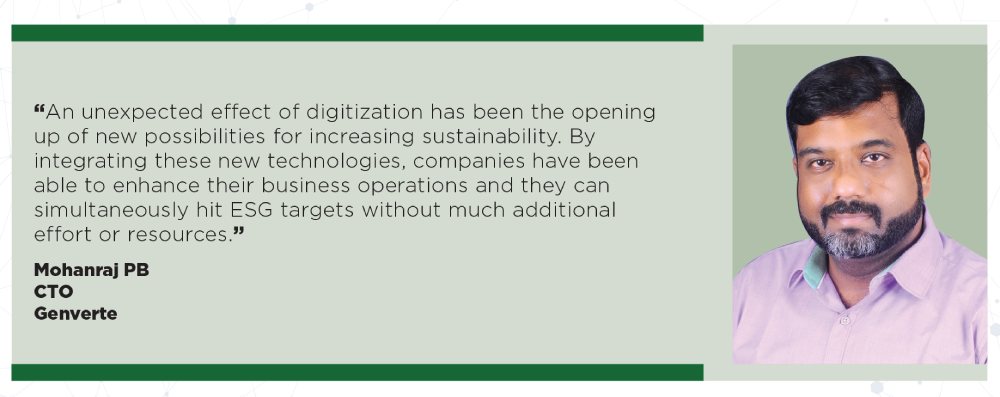The Growing Importance of ESG in Manufacturing

The integration of ESG into the Manufacturing sector is not just a trend; it is a fundamental shift towards a more sustainable and responsible future. Companies that view ESG as a strategic asset rather than a regulatory burden will likely lead the way in this new era of corporate governance.
The Manufacturing industry has long been a significant contributor to global economic growth and development. However, its impact on the environment and society has also been a subject of concern. The concept of Environmental, Social, and Governance (ESG) has emerged as a vital framework for manufacturers to assess and improve their sustainability and social responsibility practices.
In addition to environmental concerns, the Manufacturing industry also faces social challenges, such as labor standards and human rights. Companies must ensure that their supply chains are free from labor exploitations and that their workers are treated fairly. Governance is also critical in the Manufacturing industry, as companies must be transparent and accountable to their stakeholders, including shareholders, employees, and the community.
 |
According to the report ‘Global Sustainable Investment Review 2022’ by the Global Sustainable Investment Alliance (GSIA), sustainable investments globally have surged from US$ 22 trillion in 2016 to over US$ 30 trillion in 2022, illustrating the growing importance and acceptance of ESG. The International Energy Agency (IEA) in its roadmap to Net Zero by 2050 forecasts that global investments in clean energy technologies will need US$ 90 billion for projects before 2030 to meet climate goals, underscoring the critical role of ESG in driving the future of engineering and machine tools.
Navigating the ESG maze
Peter Jacob, formerly with Bharat FIH, a Foxconn Technology Group company, and now embarking on an ESG technology solutions company Genverte, says “Numerous frameworks exist to help companies align their practices with ESG principles. Prominent ones include the Global Reporting Initiative (GRI), the Sustainability Accounting Standards Board (SASB), and the Task Force on Climate-related Financial Disclosures (TCFD).”
| Tech Talks is a column by industry veteran and journalist Reji Varghese that talks about the latest advancements in Machine Tools, provides snippets from history, interesting facts, etc. about the Machine Tool industry. |
Business Responsibility and Sustainability Reporting (BRSR)
In India, SEBI has introduced the BRSR framework, which requires the top 1,000 listed companies to disclose their ESG-related information as a mandatory process. These frameworks provide comprehensive guidelines on how to measure, manage, and report ESG performance. Additionally, ISO standards like ISO 14001 for environmental management and ISO 26000 for social responsibility offer structured approaches to integrating ESG into business operations.
The integration of ESG into the Engineering sector is not just a fad; it is a fundamental shift towards a more sustainable and responsible future. Jacob says, “Companies that view ESG as a strategic asset rather than a regulatory burden will likely lead the way in this new era of corporate governance. And as we look to the future, the integration of advanced technologies with ESG principles holds the promise of not only solving today’s challenges but also creating a more transparent and sustainable tomorrow.”
Environmental considerations
The manufacturing process has a significant impact on the environment, from resource extraction to waste management. Raghunath Vaddadi, CEO, of RapidQube, a company specializing in digital transformation solutions across manufacturing industries, says, “Companies
must adopt sustainable practices to reduce their carbon footprint, minimize waste, and optimize resource use. Some key environmental considerations are renewable energy sources, water conservation, waste reduction and recycling, and supply chain sustainability.”
| In India, SEBI has introduced the BRSR framework, which requires the top 1,000 listed companies to disclose their ESG-related information as a mandatory process. These frameworks provide comprehensive guidelines on how to measure, manage, and report ESG performance. |
Social responsibility
Manufacturers must prioritize social responsibility by ensuring fair labor practices, safe working conditions, and community engagement. Vaddadi says, “Some key social considerations companies should consider are diversity, equity, and inclusion, labor rights and fair wages, health and safety, and community development.”
Governance and ethics
It is imperative for companies to implement effective governance and ensure ethical practices at all levels. Manufacturers need to be compliant with regulations and operate with transparency and accountability. Vaddadi says, “Some of the factors important in governance are diversity and independence of the board, executive compensation, audit and risk management, and ethical sourcing.”
 |
| The integration of ESG principles into manufacturing operations offers numerous benefits, including improved brand reputation; increased operational efficiency; reduced costs and risks; access to capital and investment; and enhanced stakeholder trust. |
Benefits of ESG in manufacturing
The integration of ESG principles into manufacturing operations offers numerous benefits, including Improved brand reputation; Increased operational efficiency; Reduced costs and risks; Access to capital and investment; and Enhanced stakeholder trust.
Several manufacturers have successfully integrated ESG principles into their operations, achieving significant benefits.
Siemens: Siemens is one of the largest industrial manufacturing companies in Europe and has long been a proponent of clean energy. In 2015, it was the first global industrial company to commit to achieving carbon neutrality by 2030. More recently, Siemens has taken its ESG commitment to the next level with its new DEGREE framework which stands for decarbonization, ethics, governance, resource efficiency, equity, and employability. Siemens also appointed Judith Weise, one of the top Chief Sustainability Officers in Europe, as its Chief People and Sustainability Officer. The DEGREE framework constitutes a 360-degree approach for all stakeholders – customers, suppliers, investors, people, the societies served, and the planet.
General Motors: General Motors launched a new DEI framework, strategy, and operational model in 2024, focused on leadership, talent equity, inclusive employee experience and culture and community, and social impact. The company was recognized in the Human Rights Campaign Foundation’s Corporate Equality Index and was awarded the Equality 100, the highest possible score in this category.
Moving towards circular economy principles
‘Circular economy’ is a system where materials never become waste and nature is regenerated. In a circular economy, products and materials are kept in circulation through processes like maintenance, reuse, refurbishment, remanufacture, recycling, and composting.
Jacob says, “ESG has made a tremendous impact on how manufacturing companies are thinking about the lifespan of their products and materials, with many companies moving toward a circular economy model. This means extending the life of products through refurbishing, remanufacturing, and recycling, which reduces waste and lessens reliance on finite resources. A circular economy helps companies increase their resilience, boost brand affinity, increase innovation, and drive new revenue streams—all while contributing to the net zero agenda.”
Sustainability and smart manufacturing
With the shift toward digital transformation, more and more companies are investing in new technologies like cloud computing, AI, VR, AR, etc., to improve efficiencies, bring down costs, and stay more competitive.
Mohanraj PB, the architect behind the innovative Genverte solution, says, “An unexpected effect of digitization has been the opening up of new possibilities for increasing sustainability. By integrating these new technologies, companies have been able to enhance their business operations and they can simultaneously hit ESG targets without much additional effort or resources.”
Addressing labor shortages
Amid persistent skilled labor shortages in the Manufacturing sector, ESG principles have been a guiding light for attracting talent and reducing turnover of employees. By focusing on the ‘S’ of ESG, companies have transformed their approach to worker safety, health, and satisfaction.
 |
Vaddadi says, “ESG principles include ensuring safety and well-being for workers, facilitating a good work-life balance, providing growth and enrichment opportunities for workers, promoting a culture of diversity and inclusion, and demonstrating corporate social responsibility. By implementing various changes to abide by these principles, manufacturing companies can safeguard themselves against labor shortages, while also ensuring their employees are motivated to perform optimally.”
| Manufacturers are now leveraging advanced technologies such as IoT, AI, blockchain, and advanced analytics to optimize resource usage, reduce their carbon footprint, and drive operational efficiencies. |
Ethical sourcing
With increasing scrutiny from stakeholders and the public on a company’s supply chain, it is essential that companies ensure ethical sourcing of raw materials, fair labor practices, and compliance with environmental regulations across their global supply chains. This development is intricately tied with ESG.
Jacob says, “Supply chains can have a substantial environmental impact, from raw material extraction to manufacturing processes and transportation. By increasing supply chain transparency, companies can identify their negative impacts and find ways to implement more sustainable practices. Both supply chain transparency and ethical sourcing are also critical for ensuring social responsibility, fair labor conditions, and worker safety.”
ESG and innovation
The evolution of ESG in manufacturing has ushered in an age of innovation for the industry.
The Manufacturing industry has been traditionally considered to be slow and resistant to change but ESG initiatives have been one of the main driving forces behind its recent transformation. Manufacturers are now leveraging advanced technologies such as IoT, AI, blockchain, and advanced analytics to optimize resource usage, reduce their carbon footprint, and drive operational efficiencies.
Jacob says, “Companies are transforming their product design for sustainability—using fewer components, incorporating recyclables into packaging, and using modular design principles to facilitate repair and upgradeability. All these innovations are helping manufacturing companies stay competitive and resilient in the face of potential future disruptions and turbulent markets while also supporting ESG goals.”
The integration of ESG into the Manufacturing sector is not just a trend; it is a fundamental shift towards a more sustainable and responsible future. Companies that view ESG as a strategic asset rather than a regulatory burden will likely lead the way in this new era of corporate governance.
 |
Reji Varghese MD RV Forms & Gears fngreji@gmail.com |




 Facebook
Facebook.png) Twitter
Twitter Linkedin
Linkedin Subscribe
Subscribe